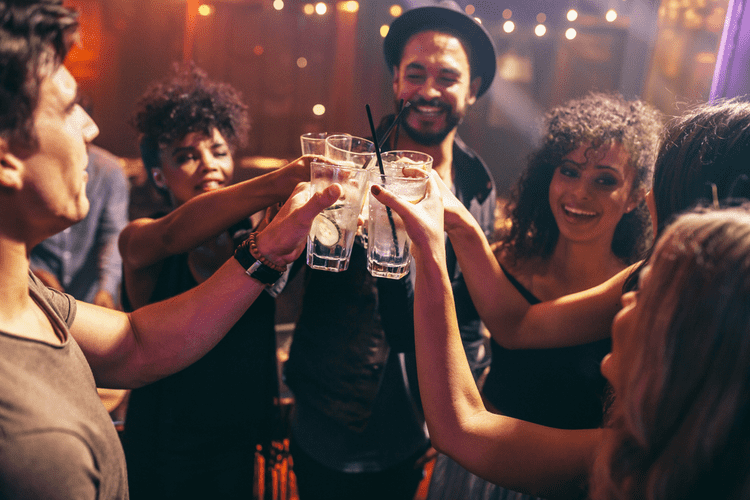In the most severe cases of alcohol intoxication, they may even fall into a coma. Due to this, it is really important to get someone emergency help if their condition is deteriorating. Depending on the severity of someone’s alcohol use disorder, they may choose to seek inpatient or an outpatient treatment. Withdrawal symptoms from alcohol can be extremely painful and sometimes life-threatening, so if detox is needed, it is recommended to undergo treatment in a facility providing around-the-clock medical supervision. But what does being ‘blackout’ really mean in terms of brain processing, memory formation, and how someone acts – and how common is it, particularly among young people?
- People with diabetes should be sure to pay attention to any potential warnings.
- However, Lin and colleagues (1995) reported that the LDL cholesterol in alcoholics exhibits altered biological functions and may more readily cause cardiovascular disease.
- Ketoacidosis typically occurs in patients with type 1 diabetes who completely lack insulin.
- In rare cases, however, the condition also may affect people with type 2 diabetes.
The National Institute of Neurological Disorders and Stroke estimate that 70% of people with epilepsy can control their symptoms by taking medication or undergoing surgery. A doctor may prescribe fludrocortisone to reduce blackouts in people who experience neurally mediated syncope. Take our free, 5-minute alcohol abuse self-assessment below if you think you or someone you love might be struggling with alcohol abuse. The evaluation consists of 11 yes-or-no questions that are intended to be used as an informational tool to assess the severity and probability of an alcohol use disorder. The test is free and confidential, and no personal information is needed to receive the results. Generally, eating a meal with your drinks is critical, and ideally, that meal would contain a few carbohydrates, too.
Is Blacking Out a Sign of an Alcohol Use Disorder?
Ketoacidosis typically occurs in patients with type 1 diabetes who completely lack insulin. In rare cases, however, the condition also may affect people with type 2 diabetes. In a milder form, ketoacidosis may even occur in people who are fasting. In those people, insulin levels are diminished, because the fasting has considerably lowered their blood sugar levels, thereby depriving the pancreas of its stimulus to produce and secrete insulin. Glycogen is a large molecule that consists of numerous glucose molecules and serves as a storage form of glucose in the tissues, particularly the liver.
The frontal lobe also plays a role in short-term and long-term memory formation and recall. Drinking too much alcohol can cause diabetes by causing chronic inflammation of the pancreas (pancreatitis), impairing its ability to release insulin. Diabetes and alcohol use may also co-occur because alcohol is can diabetics get drunk “empty calories,” meaning it has no nutritional value. Consuming alcohol can contribute to unhealthy eating patterns, weight gain, and obesity, which is a major risk factor for diabetes. Alcohol can also interfere with the body’s sensitivity to insulin, which can affect the onset of type 2 diabetes.
Recognizing the risks
Alcohol can worsen diabetes by blocking the production of glucose in the liver, which can result in very low blood sugar levels. The symptoms of low blood sugar (hypoglycemia) are usually similar to the side effects of alcohol, making it difficult to differentiate the two. Low blood sugar and alcohol can both cause symptoms like blurred vision, slurred speech, sedation, and impaired coordination. Accordingly, more studies are needed to determine whether the beneficial effects of daily moderate alcohol consumption outweigh the deleterious effects. Diabetics clearly should avoid heavy drinking (i.e., more than 10 to 12 drinks per day), because it can cause ketoacidosis and hypertriglyceridemia.

The prevalence of alcohol consumption among adults with chronic medical conditions in the U.S. is ∼31% (19). In our study of an ethnically diverse population of patients with type 2 diabetes, the level of alcohol consumption was similar. A 2006 study found that temporary memory loss caused by a fall in blood pressure (syncope) is a more likely cause of nonalcoholic-induced blackouts. Another complicating factor for research on blackouts is the potential use of other drugs (illicit or prescription) that might also contribute to memory loss. Although several research studies statistically control for or exclude individuals who report co-occurring illicit drug use, research clearly indicates that some individuals who report blackouts also report other drug use (Baldwin et al., 2011; Haas et al., 2015). Thus, researchers must be cautious and account for factors other than alcohol that might contribute to blackouts.
Diabetic Shock And Insulin Reactions
Elevated levels of those compounds can cause nausea, vomiting, impaired mental functioning, coma, and even death. Ketoacidosis is caused by complete or near-complete lack of insulin and by excessive glucagon levels. Among their many functions, insulin and glucagon regulate the conversion of fat molecules (i.e., fatty acids) into larger molecules (i.e., triglycerides), which are stored in the fat tissue. In the absence of insulin, the triglycerides are broken down into free fatty acids, which are secreted into the bloodstream and delivered to the liver.
Contact us today to find an alcohol treatment program for yourself or a loved one with diabetes. The most effective way to overcome alcohol use and addiction as a diabetic is to seek professional treatment. While feeling a bit dizzy or drowsy after drinking does not always signal harm for a non-diabetic, for diabetics this can signal larger problems.
A blackout is not the same as “passing out,” which means either falling asleep or losing consciousness from drinking too much. Many symptoms of hyperglycemia and hypoglycemia are similar to those of being drunk. Alcohol slows down activity in the brain and throughout the body and can cause numerous effects from a feeling of relaxation to drowsiness and decreased coordination.


